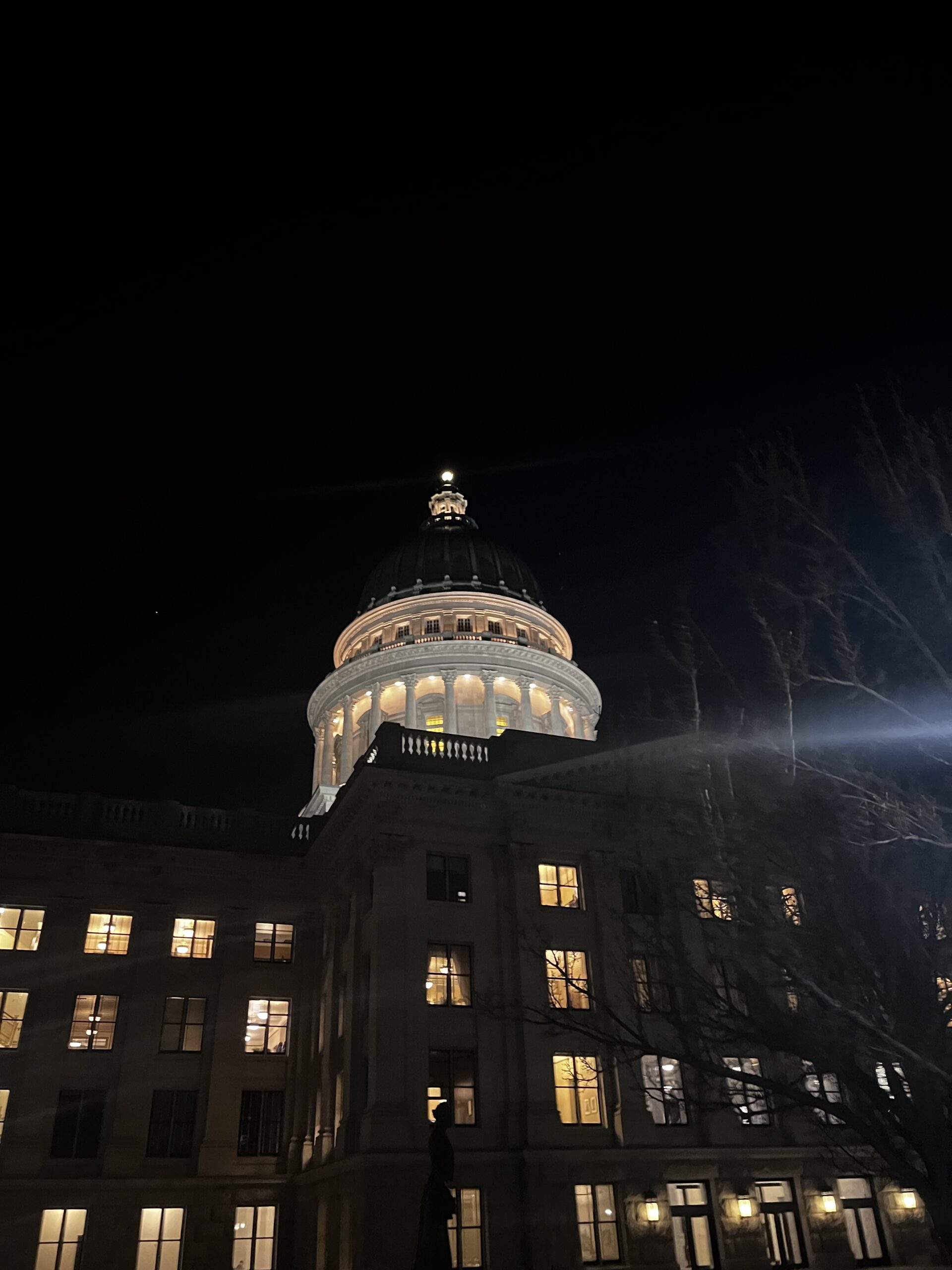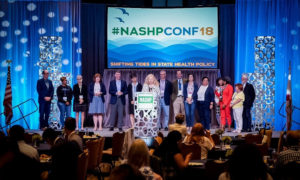The legislative has come to a relatively quiet end. I apologize for not getting out a Week Six summary. Things were a little busy with early morning starts and late night finishes. Here’s a review of the top four most popular topics we dealt with.
Medical Marijuana/Hemp Extracts
I don’t think there is any doubt that this was the most watched topic for the whole session. Given the volume of issues and the complexity involved, I will not be able to do this justice as part of a blog post, but I will do my best to give you a brief overview.
While there were four bills on this topic, only one passed. Let me start with that one. HB 58 (chief sponsor was Rep. Froerer) came out of the interim committee as a unanimously recommended bill. The purpose was to simply extend the existing Hemp Oil Program for another five years. This program was implemented two years ago and allows people who suffer from uncontrolled seizures to possess Hemp Oil without fear of state prosecution. One concern with the program is that we have little information about how it’s working. Who’s getting cards? What oil are they using? Does it help or hurt? and Why do so few people choose to renew their cards? When the bill came to the House Floor, I proposed a substitute bill that included instructions for the program managers to allow more access to the data for researchers and also to request a formal study of the program’s impact. My version was the one that ultimately passed the House and Senate. It is representative of my general philosophy that hemp extracts and compounds should be available where there is evidence that they might be safe and effective and where there is support of the scientific community.
Two other bills would have greatly expanded this concept. There were more than a dozen different versions between the two bills and numerous amendments proposed during the session. At their core, they attempted to do the same thing, but it various ways – allow for the production, processing, distribution, possession and use of hemp-based compounds for medical purposes. For me, the details matter. The challenge is that the State of Utah has no experience regulating or monitoring any of these steps for a medicine; that has always been the purview of the US Food and Drug Administration (FDA). So in order to make this a reality, it would require a lot of new roles for state government and that should give us all a little pause before moving forward.
To make a long story at least tolerably short, let me fast forward to the last day of the session. An amended version of one of the Senate bills had passed out of committee with some of the concepts from both bills merged into one, but support in the whole House was not strong. One last version was prepared and presented (but only in concept) to the House majority caucus at about noon on the last day. It was still quite complex, and not my favorite approach, but I probably would have voted for it. Throughout the afternoon, House members kept wondering when we would see a drafted version of that proposal, but it never appeared. I was informed that since there was no funding allocated in the final budget and it was too late to make changes to the budget the bill would not be heard.
I am sure that this issue will be back during the interim for further consideration, but it will be immediately obvious that to do this right, it will be complicated and possibly expensive.
Death Penalty
Another bill that got a great deal of attention but ultimately never made it to the House Floor was a Senate proposal to get rid of the death penalty in Utah. I realize that implementing the death penalty is not happening how anyone would like. It delays justice, runs the risk of executing an innocent person, and costs a lot of money. But the question is whether the time has come to get rid of it. I’m not sure I know the answer to that question, but I was not ready to vote to completely get rid of it this year.
The bill passed the Senate and a House committee, but was never presented on the House Floor. I never heard a straight answer as to why it didn’t get prioritized for the last day, but one can assume that it had to do with the fact that there were a lot of Senate bills whose sponsors wanted them to get a hearing on the last day and some got prioritized and others didn’t.
Budget
This was a difficult year for the budget. While we did have revenue increases to make it easier, there was a general understanding that we need to set aside money to replenish our reserves for the next rainy day. It felt more like a birthday party for a 24 year old than a child’s Christmas for sure. It was nice to have a little flexibility, but nobody was going crazy over the money.
In the final versions, we did set aside needed funds to replenish the reserves. We also put more money toward education than the governor had requested, including a 3% increase in per-pupil funding and three badly needed buildings for Utah’s colleges and universities.
I applaud and thank our budget leaders for their leadership, discipline and thoughtfulness in putting together a balanced budget that fairly and evenly addresses the needs across the state.
Health Care
I thought this would be a more heated topic than it actually was. The two major impacts were efforts to identify opiate abuse as a significant problem and a modest funding of Medicaid for additional needy adults.
Opiates are a real problem, and in many cases it starts with legitimate use of prescription medicines. I appreciate the many bills that attempt to prevent drug overdose deaths, but I don’t think we did anything to stop good people from getting addicted in the first place. I am sure this topic will be back over the interim and hopefully we will make progress on helping physicians and patients dealing with pain to find a way to do it more safely.
Rep. Dunnigan was back this year with an incremental approach to making Medicaid benefits available to the most needy adults. This year’s version addresses the medical needs of the lowest income populations – the homeless, those with mental illness or substance abuse problems, and those leaving jail or prison and coming back into the general population. This bill had the broad support of Republicans in the House and passed the Senate easily. Many of us will be watching closely to see if it can deliver the promise of helping people who need a little hand up to move into true self reliance.
Voting “No” Doesn’t Mean “I Hate You” (Follow Up)
In my last post I mentioned that I tend to vote “No’ more than the average legislator. Well, as it turns out, I vote “No” more than almost all the other legislators. Based on statistics compiled after the session, I ranked #1 among Republicans for voting “No” with only four other representatives higher. As a reminder, there are a lot of reasons to vote against a bill and just because I vote “No” on a bill you like doesn’t mean I am against you or your idea.
What About My Stuff?
While I had a lot of thoughts and ideas for bills, I prioritized six bills that had the best chance of making a difference. The best idea (and the one that I heard the most positive support from my constituents about) was the proposal to eliminate automobile safety inspections. This is not a new idea, and has historically met resistance by the more moderate Republicans in the House who want to believe that it makes a difference even though in 80 years of the program there has never been data that backs that up. I took my best shot at it and it ended up being referred for interim study.




Great insight! I really enjoyed getting a ‘behind the scenes’ view of what happens and how everything works.
Thanks for being a great representative and helping voice the opinions of the people!
Norm, Thanks for your service. I so appreciate being able to read your posts when I get a chance. I always feel informed. It is such a breath of fresh air to be informed rather than bludgeoned with rhetoric.